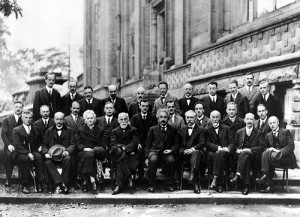This post originated as a comment left by Matthew Stollak (or akaBruno if you know him from Twitter) on a post about the HR Certification Institute changing its PHR/SPHR/GPHR eligibility requirements. I asked him if I could reuse his comment as a post, and he had no problem, so you get to see his comments front and center. Enjoy!.
I have been a SHRM student chapter advisor for over 10 years and have taken and passed both the PHR and SPHR exams. I know a lot of other passionate and dedicated student chapter advisors who were not pleased with the recent changes in eligibility. These changes sparked vigorous discussion on the SHRM Chapter Advisor listserv, and prompted HRCI to host an impromptu conference call with advisors to address the new eligibility requirements. While I believe the changes are set in stone, I do know Nancy Woolever, Director of Academic Initiatives at SHRM (whom Ben has interviewed about SHRM’s HR education program), and Chuck Salvetti, SHRM Student Programs Manager, are looking into alternatives for students to help students distinguish themselves as they apply for HR positions.
That being said, here are my thoughts:
1. I concur that “If some “upstart†can take the exam after college and pass without any exempt level HR experience, then that doesn\’t necessarily mean that they\’re as qualified as someone who has years of HR experience before deciding to take the exam.†However, as @adowling noted, there are already restrictions in place for student who pass the exam. Students who pass the exam are NOT allowed to claim they are certified. They MUST get 2 years of exempt-level experience in five years after passing the certification exam before being allowed to use the PHR designation.
2. One concern stated by HRCI was that students had a lower passing rate than HR professionals (57.2% to 71%). First, that should be expected. However, that is still a majority able to pass the exam. Further, if, as @Lori noted, “a certification exam touts its value on an experiential level,†and a majority of a group of individuals are able to pass it without the experience, shouldn\’t the focus be on changing the exam than the eligibility requirements? Why aren\’t HRCI and its question writers being held accountable for an exam that doesn\’t reflect that experiential level instead of punishing students who may demonstrate a strong understanding of the HR knowledge base?
3. Why is exempt experience held as the end-all, be-all of eligibility? One can take the exam without ever having taking an HR course. One can even take the exam without ever taking a single college course! A siginificant number of students walk into the exam with a wealth of HR “experienceâ€: they have taken several HR and management courses, participated significantly in their student SHRM chapter, participated in HR internships or job shadowing or mentoring, conducted HR research, competed in the HR games, and attended SHRM professional chapter meetings and state, regional or national SHRM conferences. Many of these activities count toward recertification, but are not seen as important enough to qualify for certification.
4. In a similar vein, no effort was made by HRCI/SHRM to examine the “quality†of student passing rates on the PHR exam based on academic program. Do those students who come from a program that follows the SHRM curriculum perform significantly better on the exam? If true, wouldn\’t this have been a tremendous selling point for SHRM on the quality of their academic initiatives?
5. If experience is seen as critical, many academics have taken and passed the PHR and SPHR exams, and can claim being certified, without having worked a single moment in an exempt HR position. Should a similar constraint be placed on academics?
6. If the concern is that students who pass the exam are taking jobs away from more “qualified†HR professionals who have the experience, but have not passed the exam, one has to wonder about the true signal of certification and what it represents. If certification is so critical, why do so few HR jobs require it or use it in their advertising. A 2005 study by Aguinis, H., Michaelis, S. E., & Jones, N. M. in the International Journal of Selection and Assessment analyzed each of 1873 HR job announcements available over a 1-week period on http://monster.com, http://hotjobs.yahoo.com, http://careerbuilder.com, and http://shrm.org. Results showed that only nine (i.e., .48%) job announcements stated that there was a requirement and only 70 (i.e., 3.73%) job announcements stated that there was a preference for job applicants with any type of HR certification.
Matthew teaches the next generation of HR professionals and somehow finds time to write an interesting blog called True Faith HR. Check it out.
 My view of SHRM apparently is different than the growing disdain among my fellow HR Professionals. As I was developing my knowledge of HR at the University of Michigan, I was given a great deal of support by SHRM either directly or indirectly. There in lies the key to why I feel that SHRM is still a relevant organization. Continue reading
My view of SHRM apparently is different than the growing disdain among my fellow HR Professionals. As I was developing my knowledge of HR at the University of Michigan, I was given a great deal of support by SHRM either directly or indirectly. There in lies the key to why I feel that SHRM is still a relevant organization. Continue reading 



